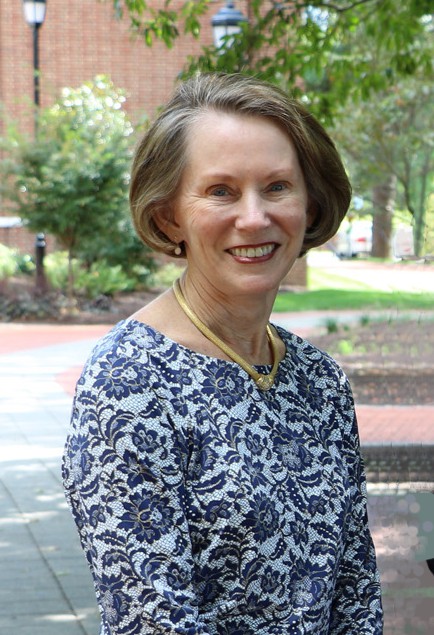Q&A with Dr. Carol Vukelich
Meet CEHD’s Interim Dean
Dr. Carol Vukelich began her term as interim dean of UD’s College of Education and Human development on July 1, 2015. Prior to this, she served as deputy dean for the college, under Dean Lynn Okagaki.
We sat down with Dr. Vukelich and asked her what she hopes to accomplish during her term and how her extensive experience with Delaware’s education system will help advance our college and improve student outcomes.
Q. What positions have you held and how have they helped to shape your vision of education?
What position haven’t I held? I’ve been an elementary school teacher, program coordinator for UD’s Master of Instruction program, director of the Delaware Center for Teacher Education and president of the Association for Childhood Education International. I’ve also advised universities around the world on how to create top-notch teacher preparation programs.
Through these roles, I have worked with teachers, principals, faculty, legislators, parents, and most importantly students. I realize that we all need to cooperate and collaborate to create a strong learning environment for our children.
Q. It sounds like education is your passion. How do you stay in touch with what really matters—the students?
In recent years, I’ve been a sort of “grandparent” to many classrooms in Delaware. Working in classrooms keeps me grounded in the real work of the College—helping prepare outstanding educators and human service professionals who seek to make a difference in children’s, adolescents’, parents’, and families’ lives.
Q. What is your first initiative for the College?
UD has recently updated its strategic plan—Delaware Will Shine. I served on one of the working groups, meeting with stakeholders to learn about their concerns and ambitions for us. This was an enormously beneficial exercise, motivating me to update our College’s strategic plan. Based on UD’s key pillars, I hope to further encourage our mission through Inclusion, Exploration, Innovation, and Collaboration.
Q. Tell us a little about that. Do you have any initiatives in mind?
Absolutely. We introduced a strategic plan almost five years ago when our College was reconfigured. Since then, we have been developing innovative solutions to the challenges we face both within our fields and as an institution of higher learning.
Inclusion
It is critical that we support a diverse student body. Inclusion is the cornerstone of our programs’ curriculum. We are committed to increasing the number of undergraduate and graduate students from underrepresented groups, including first-generation students, people with disabilities, international students and students of color. We are working on creating scholarships to attract and retain qualified candidates with financial challenges.
Exploration
Over the past decade, I had the opportunity to work with colleagues at universities in Saudi Arabia, Qatar and the United Arab Emirates —a life-changing experience. It is imperative that our students engage in real world service learning. They need to immerse themselves in other cultures to become better global citizens. This year, we are participating in UD’s World Scholar program, and offering scholarships to students for study abroad opportunities in South Africa, Turkey, and more.
Innovation
We want to prepare our students to help solve the critical education and social problems, so they can become leaders. This fall, we are launching a Making a Difference grant program. Our undergraduates are encouraged to identify a problem, create an interdisciplinary team of students and propose a solution to that problem. The College will provide funding to seed the solution, allowing our students to become entrepreneurs and visionaries.
We will also be introducing a new Dean’s Scholar Program, one that offers students who are not interested in becoming a human service professional or teacher to design a program that matches their needs and includes numerous internships with the College’s researchers. Their focus is on becoming a researcher.
Collaboration
Our College is strong—fully accredited and nationally recognized. Our faculty and alumni are leaders in the fields of education, disabilities, family issues and healthcare services.
We want to share this knowledge with the community, whether that means serving on national boards, speaking at conferences or creating model programs that can be rolled out to a global audience.
We are currently looking to create a partnership with educators in Korea to share our early education pedagogy. We have created an online master’s program in teacher leadership, to help educators from around the country lead from the classroom, while learning from home. And we offer professional development programs for all levels of educators—preschool teachers to principals, special needs professionals to superintendents, and human resource staff to home-based childcare workers.
Q. So that’s quite a list. What is the most important initiative?
My top initiative as dean is difficult to identify. Certainly, I want to sustain the tremendous progress the College made over the last several years in the research and scholarship area.
Because of the decreasing numbers of teacher education students in the College, a decline that parallels that found in the nation, my focus must be on working with the faculty to ensure that our current programs are unique from other institutions in ways that encourage high school seniors to select our programs over those at other institutions and create innovative new programs to attract an increasing number of students at the undergraduate and graduate levels. Therefore, my top initiative is to support the College’s achievement of excellence in teaching, research and scholarship, and service.
Thank you, Dr. Vukelich, for sharing your vision with us.
To learn more about our College initiatives, follow us on Facebook and Twitter.



